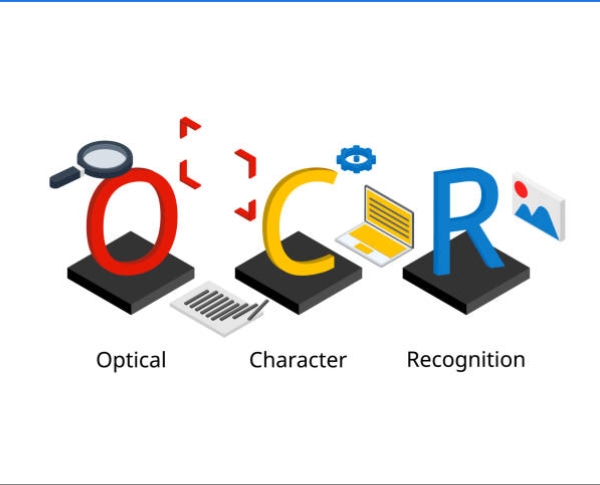
Financial technologies, or fintech, refers to the technological developments related to finance. The fintech industry keeps evolving by introducing various features and tools to aid financial organizations’ efficient functioning. Banks are the primary financial organizations making the most of these innovations. ICR/OCR technology is a ground-breaking innovation in the financial technologies industry, enabling banks to conduct secure customer verification and prevent financial crimes. Researchers predict the ICR/OCR market to be valued at about USD 40 billion by 2030.
What is OCR?
Before digitization, banks and other financial organizations used manual customer onboarding and document verification procedures. Some of them still resort to manual processes. The most adverse disadvantages of traditional methods are that they are susceptible to human error and data theft. However, with the rapid advancement in the fintech industry, financial institutions have significantly shifted to digital solutions. One of them is AI-backed ICR/OCR automation.
Optical Character Recognition, or OCR, is the technology used for scanning images and extracting information from them. The document’s letters and characters are converted into editable content. Banks rely on OCR in customer verification procedures. It accesses the document’s barcode, expiry date, and customer’s birthday and image. This aids in a bank’s secure customer onboarding and financial activity monitoring. The accuracy level of such artificially intelligent software is safe from any human error. Eventually, it protects against the potential threats of identity theft, document forgery, and Illegitimate monetary transactions. According to an estimate, manual data extraction methods are expected to be reduced to half by 2024 because of the adoption of machine learning and AI-based ICR/OCR solutions.
OCR/ICR Software – Critical Against Identity Theft and Fraud
Data breaches have become the biggest concern in cyberspace as fraudsters, hackers, and financial criminals steal data from online databases and use them for their illicit ambitions. About 15 million customer records were breached through data theft globally during the third quarter of 2022. Data theft is a significant threat to financial institutions like banks. Therefore, they must use adequate OCR/ICR software solutions to protect their customers’ data from theft, fraud, and unlawful financial practices. OCR/ICR technologies are protected with security protocols that shield your customer’s data from third-party access; this is how they prevent data breaches. Hence, ICR/OCR software creates and maintains a trust-based relationship between you and your customers, increasing your financial organization’s integrity.
OCR vs ICR
As discussed, ICR/OCR software possesses immense significance in the fintech industry to prevent financial crimes. ICR and OCR are sides of the same coin and are always mentioned together in the finance sector. However, because of the constantly evolving realm of fintech solutions, it has become easier for financial criminals to target OCR-equipped banks and other financial institutions. One of the primary challenges of OCR technology is that it works on fixed commands. Though it can understand different languages, a human resource must operate it. Also, it can only detect the document typed in a specific font. Similarly, it only identifies and translates documents with a symmetrical Dot Per Inch (DPI).
OCR vs ICR: Emergence of ICR
Intelligent Character Recognition, or ICR, is a state-of-the-art upgrade in OCR. By 2030, about 80 percent of business-to-business transactions will be entirely digital. Hence, the entire global finance sector, especially banks, must transition towards ICR technology to mitigate the possibilities of unlawful monetary transactions and money laundering. ICR is a revolutionary update in character recognition software due to its quicker processing and precision. Contrary to OCR, it is adaptive and can be trained according to document layout. It can detect document style and font because of its deep learning capability. Financial institutes can use ICR for multiple purposes like scanning cheques, loan applications and forms. It is crucial for banks in customer onboarding and KYC/AML compliance. Moreover, another fundamental advantage of ICR technology is its continuous learning ability which can prove time and cost-efficient in the longer run.
ICR Handwriting Recognition – a Revolution in ICR/OCR Technology
The most notable difference between ICR and OCR is the latter’s ability to identify and extract information from any font or layout from handwritten documents. ICR handwriting recognition is, by far, the most unique and powerful feature introduced in ICR/OCR technologies. ICR identifies, translates, and digitizes information from handwritten documents quickly and without human effort. Financial organizations must adopt ICR to save from becoming a channel of illegal monetary flows.
It is immensely significant for banks because they allocate a lot of capital and human resources to regulatory procedures. They can enhance the KYC customer onboarding process using scanner ICR technology. This would prevent data breaches, identity theft, and other more extreme financial crimes such as money laundering and terrorism financing.
Simply put, ICR/OCR technologies have greatly benefited the finance sector. ICR, being a more upgraded version of OCR, has not only replaced any space for human error but has also proved a milestone in the fintech industry. Its more efficient and accurate functioning is an excellent tool for financial organizations, specifically banks, in preventing financial crimes.

